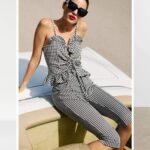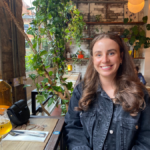- Feel Good
- 16th Apr 2021
- 2.2k Views
- 0
- 3 minutes
Filter vs Reality: How Filters Are Damaging Our Relationships

The harmful effects of comparing your real life to edited photos on social media have been well documented.
Filtered and photoshopped pictures set an unrealistic standard of what ‘attractive’ looks like. Understandably, looking at people’s seemingly perfect bodies can make us feel bad about our own. From lowering self-esteem to triggering body image issues, these filters have been a sensitive topic for many, especially for young teenage girls who spend 8 to 9 of their 15 waking hours online.
This number has shot up in recent times, owing to schools, colleges, work and even socialising moving online, opening up more opportunities for comparison and envy. In light of this growing crisis, London-based content creator Faye Dickinson launched an Instagram filter – aptly named Filter vs Reality – which aims to highlight how beauty filters hide ‘flaws’ and enhance features traditionally considered beautiful.
The filter divides your picture into two sections, one half showing a polished, filtered face and the other half showing your natural features (‘flaws’ and all). Since its launch, the filter has reached over 142.5 million impressions, with over 9,600 people – including celebrities, models and entrepreneurs – highlighting messages of mental health, authenticity and self-acceptance.
In an exclusive interview with High Life North, Dickinson explains why she felt called to draw attention to this issue and how she plans to inspire people to embrace their true selves.
What motivated you to create Filter vs Reality?
I wanted to give people a reality check. What you see on Instagram is not real life!
Dramatic beauty filters rid selfies of skin textures, tones, scars and everything that makes you, you. They create an unrealistic standard of beauty that can quickly turn into an obsession. People, especially young teenagers, become obsessed with looking perfect. They crave to see a side of themselves that doesn’t actually exist, and which corresponds to an unnatural and inhuman ideal of beauty that you can now achieve with filters. It’s so easy to feel insecure like this. I want to remind people not to let these filters fool you.
Do you think we should stop using filters?
Filters aren’t inherently bad. They become problematic when you fail to recognise the real person behind them. Playful filters like flower crowns are fine, but the ones with dramatic changes like smooth skin, a fuller lip and a pointy nose are damaging for our self-esteem and mental health.
How exactly do these filters affect us?
The people using these filters seem to have perfectly tucked-in bellies, just the right amount of tan, and they look like models, even though they aren’t. Much of the content we see daily is filtered and photoshopped to match this ideal Instagram look. So when you look in the mirror without these filters, you feel ugly. You see the raw reality that shows all your open pores, belly pouch and other ‘imperfections’ that make you feel insecure about your body.
How should we approach these pictures to create a healthy relationship with our body?
Know that you’re looking at a filtered, highly-edited picture online. The perfection you see online doesn’t really exist. What you see in the mirror is real and beautiful. It’s okay to enjoy playing around with these filters occasionally, but don’t let them take over your life. Remember and affirm to yourself that you’re unique, beautiful, strong, powerful, loved and worthy without any filter.
Faye Dickinson’s book about how social media filters alter our perceptions and rewire our brains is coming out later this year. Follow her here for updates.










Comments